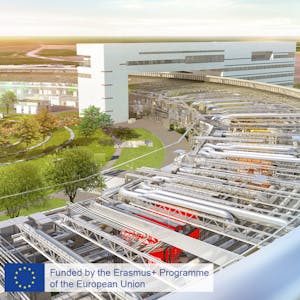Population, Food, and Soil
About this Course
This course explores the population-environment relationship. In this course, you will learn about the human population and the ways in which changes in the population affect the environment. Agriculture, soils, and the environmental implications of eating meat, vegetables, local, organic, sustainable, industrial, and other types of food are discussed too. We explore questions such as: 1. How many people live on Earth right now? 2. What is the carrying capacity of Earth? 3. What is the relationship between the number of people, where they live, the resources they consume, and their environmental impact? 4. What types of agriculture are used right now? 5. What is the difference between organic and conventional agriculture? 6. Why would you want to dig a soil pit? A conversation with Phil Connors, an Australian Environmental Scientist, will explore the topic of human population and sustainability. You will also listen to the conversations with Danielle Allen, an organic farmer, and Justin Richardson, a soil scientist.Created by: Dartmouth College

Related Online Courses
AWS Client VPN provides secure access to AWS resources in the cloud and on-premises networks from any location. This course contains two independent lessons: The first provides a step-by-step guide... more
Learn how to identify the enablers and barriers to learning transfer. Use your own experience to categorise the processes and activities involved in learning and transferring that learning into... more
Welcome to your final course in Become and EMT! Prepare for the National Registry exam. The title for this course is a little bit misleading. We do hope that at the completion of this course that... more
In this project-based course, we will build, train and test a machine learning model to detect diabetes with XG-boost and Artificial Neural Networks. The objective of this project is to predict... more
Did you know that particle accelerators play an important role in many functions of todays society and that there are over 30 000 accelerators in operation worldwide? A few examples are... more








